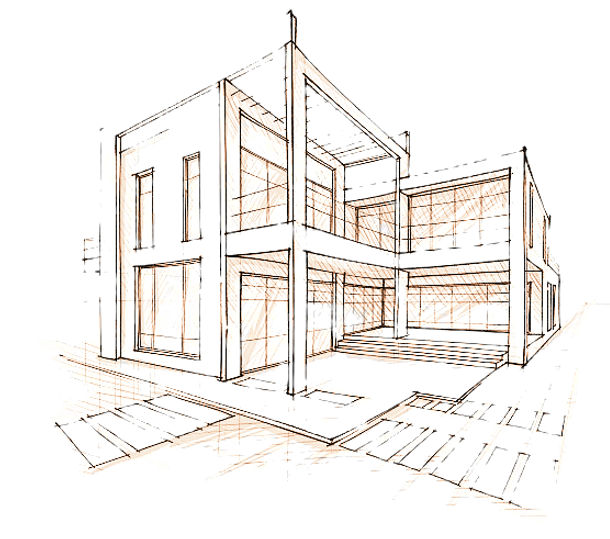
.png)
Buildings viewed up close by VG Expert
Your partners in construction expertise
Assistance VO in private and communal & Expertise construction errors and damage, also problems with contractors and architects, misleading sale of a home, technical advisor in legal proceedings, etc.
Please call or email us - 0472 59 18 98

How is it possible that someone who uses your land suddenly becomes the owner of it? Expert: “Only this agreement can protect your property”
Ariane De Borger 29-12-22 - HLN news
Jacqueline (76) and Claude (76) have to watch helplessly as a new house is being built on their field. Part of their land was used by a farmer for years and he sold it on. The cause is an 'acquiring prescription'. How is it possible that someone who uses your piece of land just becomes the owner and can even sell it? And most importantly: how can you make sure something like this never happens to you? prof. Vincent Sagaert provides explanations and tips: “Situations like this occur more often than you think.”
Jacqueline and her husband Claude bought a house with a lot of land around it and thought they would be assured of a rural view and tranquility forever. But the farmer who used part of the land as a field could sell it as his property to a family who are now building a home on it.
Isn't it extreme that something like this can happen? “Something like this happens quite often,” says property law expert Vincent Sagaert, who draws from his wealth of experience. “In most cases, this concerns a wire fence between neighbors that has been there for thirty years and the exact location of which is disputed by one of the two. But even if it is clear from the notarial deed or cleared boundary markers that it is in the wrong place: if it has been there for thirty years, whoever owns that extra land will also become the owner of it.”
You are even better covered by the lease legislation than you run the risk of losing your property
Professor Vincent Sagaert
“The acquisitive prescription is one of the most difficult chapters in property law, I always tell my students. In an exceptional case, it can even come into effect after ten years: if the possessing party - that is not the owner, but the one who thinks it is his property - genuinely does not know and cannot know that it is not his property .
Suppose, for example, that A sells a piece of land to B, who resells it to C. If the purchase between A and B is later annulled, C could in principle not be the owner. In that case, C can argue that he had believed in good faith for ten years that he was the owner and that acquisitive prescription therefore applies.”
Handy that the neighbor maintains your garden. But...
Sometimes it's convenient for a farmer or a neighbor with more time or greener fingers than yours to maintain part of your land or garden. But it is therefore not smart to allow that, because then after thirty years that land can suddenly be his?
“You can prevent this by entering into an agreement with that neighbour, which states that your neighbor may use that part of your property temporarily and with an obligation to return it. Then that is loan, usufruct, ground lease or rent. Or lease, if it concerns a farmer. Then you fall under the lease legislation, which entails a number of obligations, but that is still better than running the risk that it will become his property due to acquisitive prescription. Once there is an agreement, that is no longer possible.”
If the neighbor who uses part of your garden as his vegetable garden can no longer do so and one of his children takes over, he does not necessarily have to start counting again
Professor Vincent Sagaert
Thirty years is a long time: what if the neighbor who uses part of your garden as his vegetable garden, for example, can no longer do so and one of his children takes over? “Then it does not necessarily have to start counting again, which can be regarded as asset addition. No, an agreement is the only thing that can really protect your property.”
“A second tip to avoid such situations: take pictures when you buy something. This way you have factual evidence and you can more easily map out the situation, if necessary.”
But how can you sell land to a notary that does not belong to you? “Before September 1, 2021, the acquiring prescription could be recorded in an authentic deed from a civil-law notary, now this is only possible if the suffering party - i.e. the owner - agrees to this.” And if he doesn't agree? “Then only a judgment in which that acquiring prescription is confirmed counts. Then the court decides, but at least that way the original owner has the chance to reply.”
Right of way no longer extinguishes
“Even more has changed since September 1, 2021. Easements such as a passage that you get over someone else's land, don't just go out if you don't use them for thirty years. This also applies to neighborhood roads: even if they have not been used for more than fifty years, they can be required to be used again.”
What about, for example, a passage across a neighbour's land that you have been using for years, but for which no easement has been laid down in your deed? “In the past, that neighbor could simply block the road, but that too has changed on September 1, 2021. From then on, acquiring prescription may also apply. But that period will only start from 1 September 2021, so it can only be invoked for the first time in 2051. (laughs) It would be nice if I could still experience that.”
_edited_edited.png)
.png)






.png)


.png)